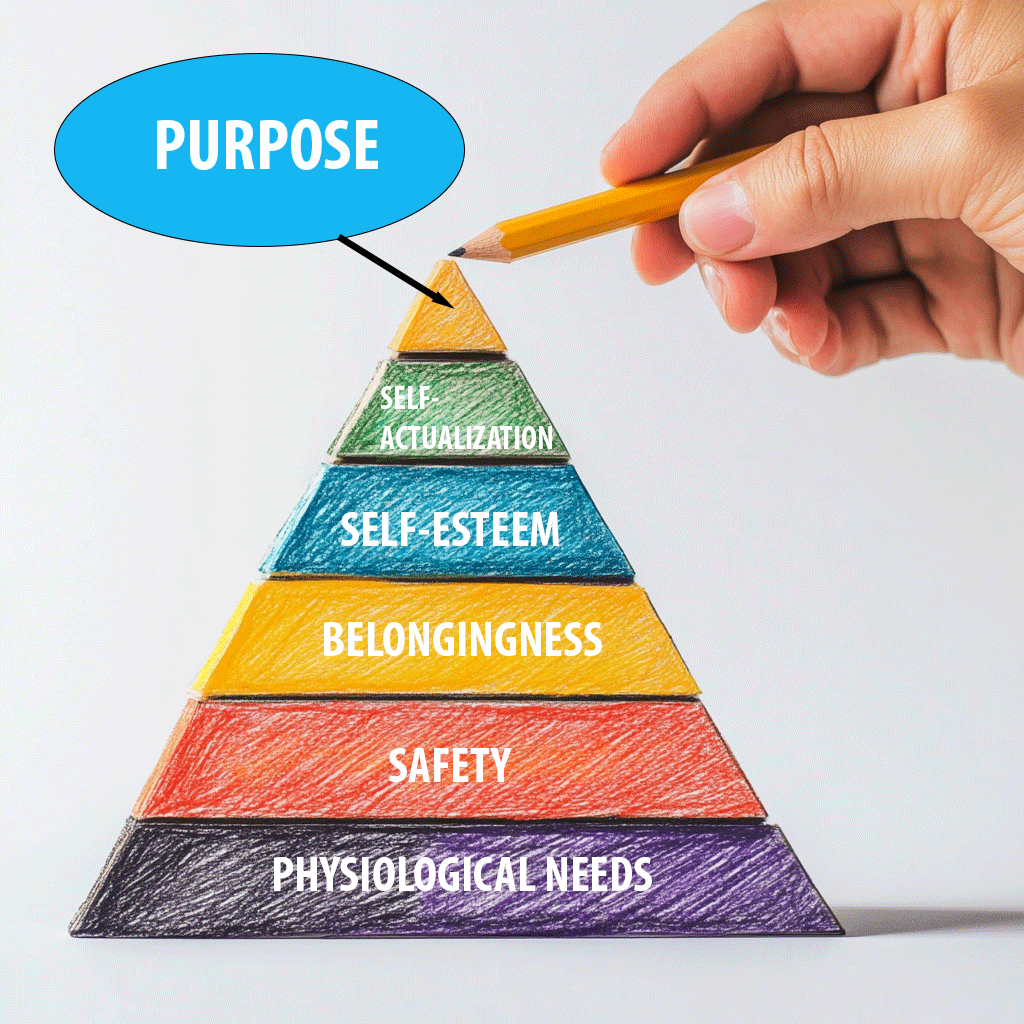
We all want our children to be successful. But what does success really mean? How do we define success today?
The Money Myth: Are We Chasing the Right Goal?
In today’s world, success is too often measured by wealth. We live in a culture where money equals security, safety, and power. Our ancient instincts—left over from a world of sabretooth tigers and food scarcity—tell us: the more we have, the safer we are. Afterall, wealth will allow you to eat better food, find better doctors, accountants, lawyers when you need one, travel better, live in a bigger house, drive better cars, wear more expensive clothes. But will all of this bring you more happiness?
As they say, statistics don’t lie. According to the National Library of Medicine, physicians are 44% more likely to die by suicide than the general population. In a study of nearly 13,000 lawyers, 28% experienced depression, 19% reported anxiety, and 21% had alcohol use problems. Investment banking, while less documented, is known for its relentless pressure and elevated mental health risk. Of course, there may be many contributing factors, but may lack of purpose and chasing a high-paying job be one of them?
Even during biblical times, those with riches were not always the most fulfilled or the most secure. Today’s media sings a similar tune: no money, no love, or, worse, no money, no life! But if money truly guaranteed happiness, why do so many wealthy people feel deeply lost? Why are depression and burnout rampant in high-earning professions like law and medicine? These are prestigious, high-paying careers. So why is fulfillment so elusive?
Because money cannot provide what the soul craves: purpose.
For some families, the answer begins with God—a deep, guiding presence in our lives. For others, it may be a sense of purpose, community, or personal mission. No matter the belief system, one truth remains: success without meaning leaves us empty. And our children, more than anything, need meaning.
What Really Leads to Fulfillment?

Psychologist Abraham Maslow defined the pinnacle of human need as self-actualization—becoming the best version of ourselves. But his student, Viktor Frankl, went further. He argued that meaning—not success, not comfort—is what drives human beings to thrive, even in the darkest conditions. And where does meaning come from?
From service, creativity, faith, and a deep sense that our lives matter beyond ourselves.
Helping Our Children Discover Purpose
As parents and educators, we have a sacred task: to guide children toward meaningful lives. We cannot define their purpose for them—but we can create the environment in which purpose grows.
At Blooming Minds STEAM Academy, this philosophy is central to everything we do. Through academic rigor, character development, hands-on learning, and a focus on contribution and creativity, we help students not only reach their potential—but live with purpose.
Visit www.bmasteam.com to learn more or register your child for a program that nurtures both intellect and inner direction.
Here’s how:
1. Model Purpose-Led Living
- Ask your children, “What do you think God—or life—is calling you to do today?”
- Reflect together: “What talents were you born with? Why do you think you have them?”
- Show that your own work, prayers, and daily choices are grounded in more than survival—they’re rooted in mission.
2. Encourage Inner Listening
- Teach children to tune into their conscience—that quiet voice nudging them toward goodness.
- Call it prayer, intuition, or self-awareness—it’s the foundation of wisdom. Establish routines, once a day, or, once a week. It doesn’t matter, as long as your child starts learning that there is time that they dedicate routinely to a higher purpose.
3. Practice Regular Giving
- Donate once a week—even $5—together as a family. How fun can it be? Once a week, you can pick a meaningful charity. There are so many today. Remove the middleman. Thanks to TikTok, Instagram, and other social media platform, you can donate directly to people or organizations who are taking care of animals. $5 is the cost of a cup of coffee today, so it will not break your budget, but will teach your child to experience the joy of giving.
- Let your child choose the cause. It empowers them to care and connect.
4. Volunteer Together
- Pick monthly service activities: clean up a park, deliver meals, write letters to the elderly. I grew up in the Soviet Union, and all kids who grew up in my times were supposed to be “pioneers”. The idea was inspired by Boy Scouts. Of course, ideology was different. But part of being a pioneer was to help older people. And I remember, our class was assigned to an 80-year-old woman who survived the Siege of Leningrad, when people were supposed to survive on 125 grams of bread per day (it’s less than a slice). She didn’t have anyone to help her and she didn’t have anyone around her. Once a week, our 3rd grade class, would come to her apartment. We would vacuum and mop the floors, did grocery shopping for her, and then we would sit down and listen to her stories, ask questions. And I remember this woman cried every time we were leaving her house, and she was so grateful. When I was a kid, I sometimes saw it as a mandatory chore not necessarily needed. We didn’t have a choice, it was mandatory to do it, and so some days we did it with pleasure, so days with less enthusiasm. But now, as an adult, I always remember that time with gratitude. My school was teaching all of us kindness, responsibility, the appreciation of labor, and most importantly, what we did then, as 10-year-old children was meaningful and had a purpose that we appreciate to this day.
- Make it joyful, not obligatory. Meaning is built through experience.
5. Play with Purpose
- Even play can be sacred. Choose books, games, and activities that spark creativity, cooperation, and care for others.
- Ask: “How did that make you feel?” “Did you feel proud of what you built/helped/shared?”
6. Redefine Career Success
- Talk about professions not as income generators, but as tools of contribution.
- Teach your child to ask: “Will this path let me help others? Will I feel useful and great about what I do?”
Purpose and Longevity: A Surprising Connection

Research shows that people who live with a sense of purpose tend to live longer, healthier, and happier lives. Even a small, regular act of kindness or a clear reason to get up each morning has a protective effect on the body and mind. So whether your child becomes a doctor, an artist, a teacher, or a builder—it’s not about the title. It’s about who they are while doing it.
Final Thought: A Higher Calling
Whether you believe in God, fate, or human potential—raising children with purpose is the most powerful gift we can give. Not just for their success. For their joy, their impact, and their lifelong well-being.
Let’s raise more than high achievers.
Let’s raise meaning-makers.
Learn how Blooming Minds STEAM Academy can support your child’s growth—academically, emotionally, and spiritually.
Visit www.bmasteam.com or register today to join a school that puts purpose and potential at the heart of education.

